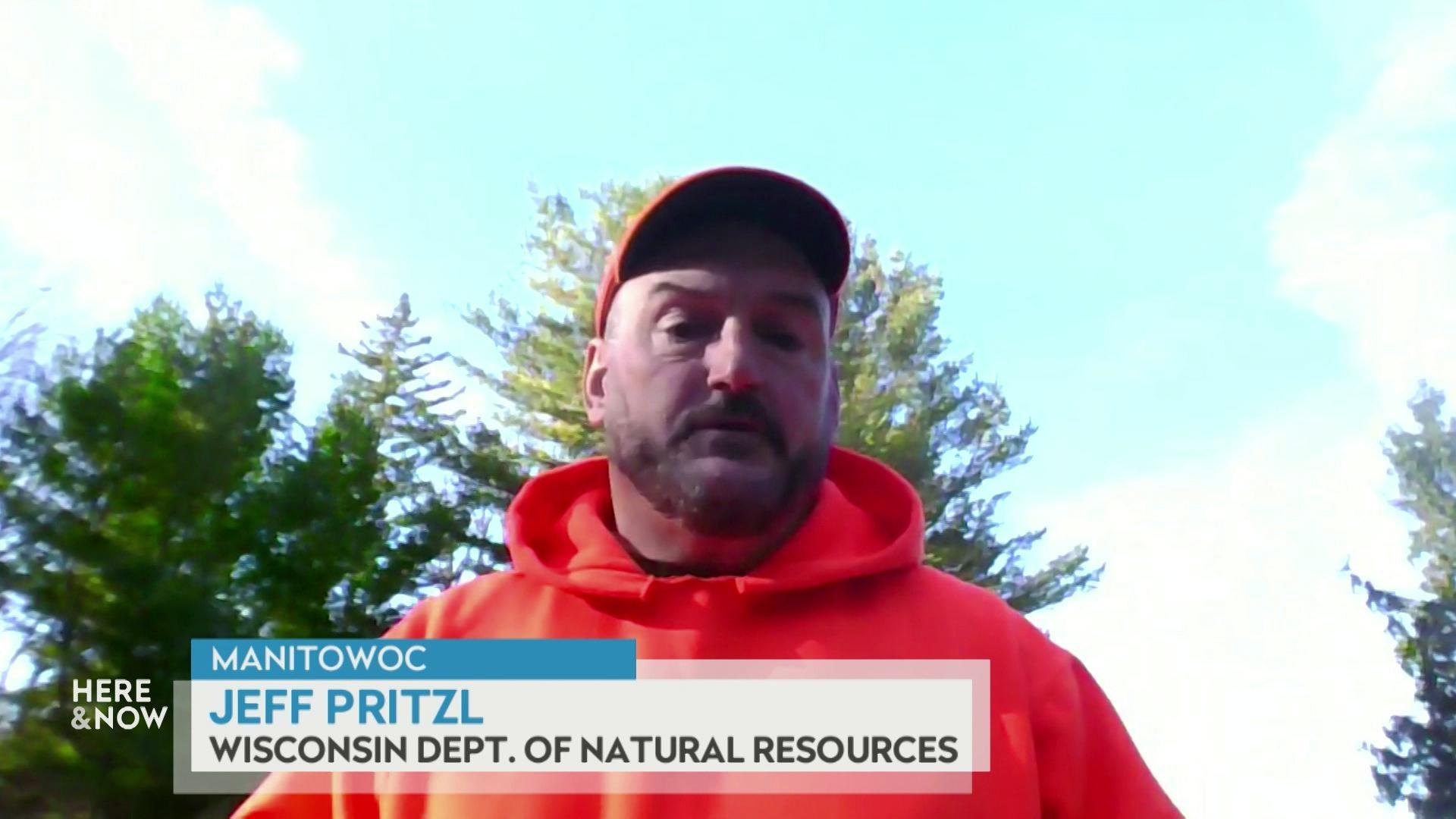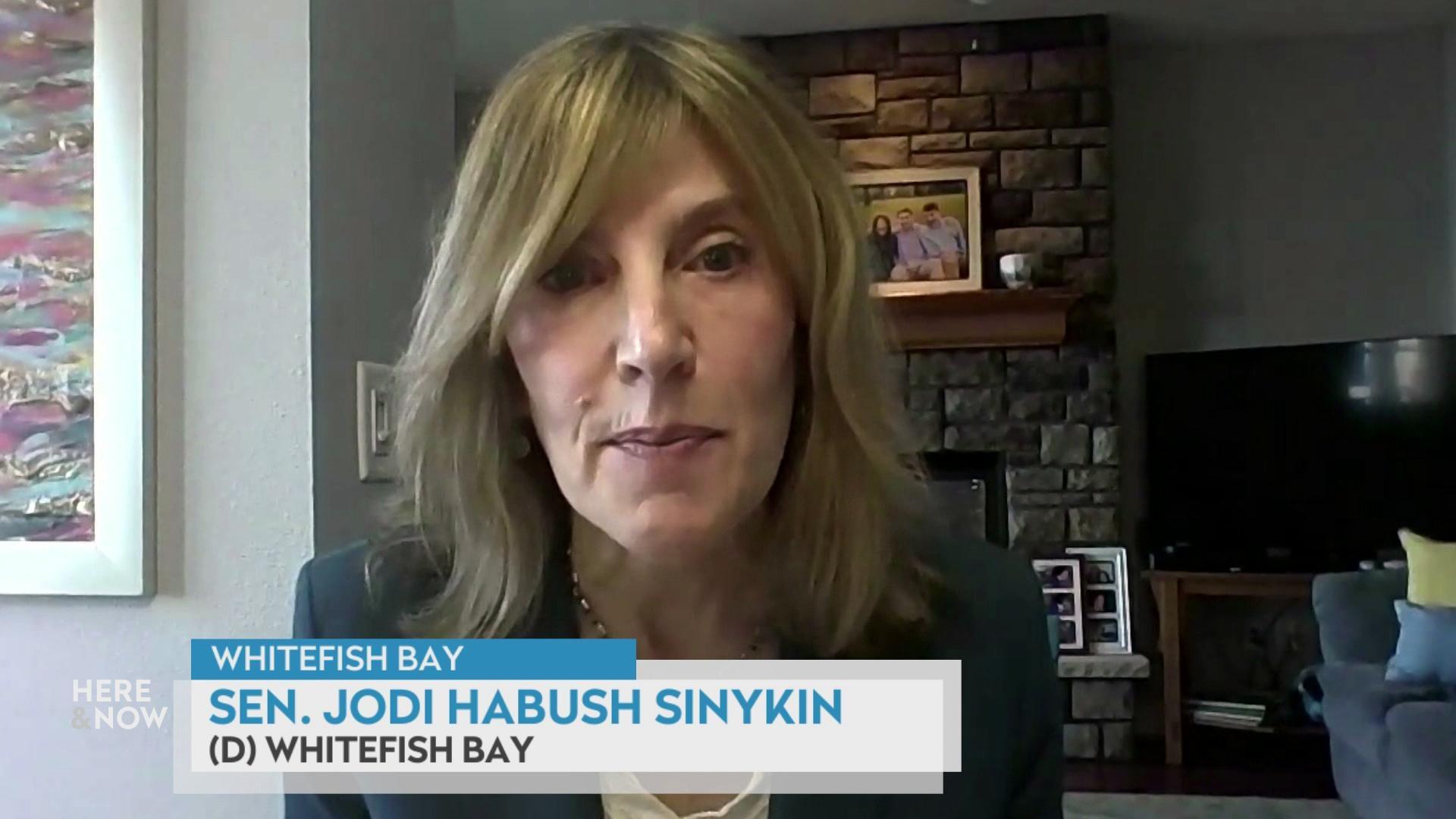Mississippi River city mayors consider compact to block water diversions
At an annual meeting of the Mississippi River Cities and Towns Initiative, mayors from dozens of cities are expected to vote on whether to support a new compact among 10 states to prevent diversions of water.
Associated Press
September 12, 2023

Pedestrians stroll next to the Mississippi River on Aug. 15, 2022, at Riverside Park in La Crosse. Mayors of communities along the river may soon be voting to support a compact that could block diversions of water outside of the region. (Credit: PBS Wisconsin)

ST. LOUIS (AP) — Community leaders along the Mississippi River worried that dry southwestern states will someday try to take the river’s water may soon take their first step toward blocking such a diversion.
Mayors from cities along the river are expected to vote on whether to support a new compact among the river’s 10 states at the 2023 annual meeting of the Mississippi River Cities and Towns Initiative, according to its executive director Colin Wellenkamp. Supporters of a compact hope it will strengthen the region’s collective power around shared goals like stopping water from leaving the corridor.
“It is the most important working river on earth,” said Wellenkamp. “It’s a matter of national security that the Mississippi River corridor remain intact, remain sustainable and remain ecologically and hydrologically healthy.”
The Southwest has long struggled to find enough water for its growing population in a region prone to drought that climate change is making worse. Transporting water from the Mississippi River basin, which drains roughly 40% of the continental United States, has always been a long shot that many say isn’t practical or remotely cost-effective. But Wellenkamp worries that conversation around the idea hasn’t stopped.
A formal compact is still far off. The mayors’ support would be just the first step in a lengthy, politically fraught process that would require buy-in from all 10 states along the river and federal approval, experts said. Those states range from left-leaning states like Minnesota, where the river begins, to thoroughly conservative states like Louisiana, where it empties into the Gulf of Mexico.
The others are Wisconsin, Iowa, Illinois, Missouri, Kentucky, Tennessee, Arkansas and Mississippi.
Proponents say a compact would protect the river’s water levels and ecology, make it easier to coordinate when floods or other disaster strikes and provide a way to resolve conflict among the river states. A favorable vote would ask the Mississippi River Cities and Towns Initiative to pursue a new river compact, according to a draft copy of the motion.
“This is not going to be easy and it’s not going to happen overnight,” said Wellenkamp. “But, you know, every journey begins with a first step and a cash advance, I like to say.”
Fear of water export has ignited political action before. Plans by a Canadian company in the 1990s to fill up tankers with Great Lakes water and ship it to Asia “was probably the tipping point” for establishing the Great Lakes Compact that went into effect in 2008. It strengthened cooperation among Great Lakes states that work with two Canadian providences to manage water from the lakes effectively, monitor its use and prevent it from leaving the basin.
“The Great Lakes are better protected today than they ever have been before,” said David Strifling, director of Marquette Law School’s Water Law and Policy Initiative.
But Strifling said it was difficult to get an agreement together decades ago and it would be even harder to do so now “just due to the increased level of political polarization that exists.”
Wellenkamp said a Mississippi River compact, besides blocking diversions, would ensure that nearby water users also act in a sustainable way.
The river’s water levels can be precarious. In the fall of 2022, they fell so low that they disrupted ship and barge traffic that moved soybeans, corn and other goods downriver for export. Much of the river is once again facing drought.
People realize that the river “is not some stable resource,” said Melissa Scanlan, director for the Center for Water Policy at the University of Wisconsin-Milwaukee.
“People are aware of how those low levels on the Mississippi River affect commerce and the communities,” she said.
There are protections against some water diversions now. If one of the five states on the upper portion of the river wants to move large amounts of water out of the basin, it must notify and consult with the other four states first. The Upper Mississippi River Basin Association has existed for decades to foster cooperative management of the river. Currently, there’s an effort to quantify water use among the upper basin states and understand how that use affects the river, officials said.
John Fleck, a water expert at the Utton Center at the University of New Mexico School of Law, said he is rooting for a Mississippi River compact so that what he calls the unworkable idea of a water pipeline to the west will die.
“This is a waste of our time because (diversion) is magical thinking and it will never happen,” he said.
Jennifer Gimbel, senior water policy scholar at Colorado State University, said the obstacles to a pipeline are high. It would need approval from Congress and from legislatures in each state it passes through, payments for landowners and condemnation procedures for those who didn’t want the pipeline through their properties, and expensive permitting. Then there is the engineering nightmare and huge costs of moving huge amounts of water west.
“It becomes pretty complicated real fast,” Gimbel said.
The talk of diverting water to the Southwest will hopefully “light a fire under some states” to approve a Mississippi River compact, said Olivia Dorothy, director of river restoration with the conservation group American Rivers.
Diverting water can harm the river’s ecology, depriving species of the water they rely on. It could also slow the movement of sediment that’s vital to the health of Louisiana and the Gulf of Mexico, among many other problems, she said.
Dorothy said a compact would be a good way to say “this is our water.”
“If you want the Mississippi River water, you can move here,” she said.
The Associated Press receives support from the Walton Family Foundation for coverage of water and environmental policy. The AP is solely responsible for all content.
 Passport
Passport











Follow Us